One hundred seven Fellows graduated from the Advance Security Cooperation Course (ASC) 18-1 May 2, with a newly developed common understanding of the challenges and opportunities to security in the region and enhanced networks of cooperation. U.S. and international Fellows from 37 locations took part in this course’s latest iteration (ASC 18-1) March 29 – May 2.
The five-week ASC is an executive education program enabling mid-level military and civilian leaders to deepen their understanding of the complex security environment in the Indo-Pacific region.
The ASC 18-1 curriculum offered 25 plenary topical discussions that survey the regional security landscape and address key regional issues such as maritime security, countering violent extremism, HADR, economic security, and regional security architecture and 29 electives on topics like geopolitics, civil-military relations, migration, and weapons of mass destruction.
Fellows from the course were excited about prospects of cooperation enhanced by the exercises.
“DKI APCSS provides a venue where we can build trust and confidence between countries based on the friendships that we built in this course,” said Ms. Myo Pa Pa Htun from Myanmar.
Fellow Li Fa-hu from Taiwan concurred. “The most unique aspect of DKI APCSS is the opportunity to join and interact with representatives from so many countries; there is no other chance for me to have such an experience. The course encourages mutual respect for every culture; this is very special,” he said.
The ASC course relied on a variety of learning formats ranging from lectures to small-group discussions to exercises. This combination and the participant-centered method enabled Fellows to learn effectively.
“In my other educational experiences, it was always a challenge to transition from theory to exercise or practice; however, at DKI APCSS we felt very free and open to express our views; and the transition from theory to practice was very clear and done very well,” explained Navy Cmdr. Victor Valencia from Peru.
In the capstone exercise at the end of the course, the 107 Fellows played the role of five country teams to negotiate the best outcomes of a hypothetical crisis related to the South China Sea dispute. Reflecting on their experience gained from the exercise, one Fellow said that the crisis negotiation exercise “helped in understanding as to why a country assumes a rigid position and how we can still focus on certain areas of common interest or of mutual agreement to work on even if major issues are not addressed immediately.”
Participants were from Australia, Bangladesh, Bhutan, Cambodia, Canada, China, Colombia, Fiji, Germany, Indonesia, Japan, Kiribati, Laos, Malaysia, Maldives, Marshall Islands, Mongolia, Myanmar, Nepal, Pakistan, Palau, Panama, Papua New Guinea, Peru, the Philippines, Republic of Korea, Solomon Islands, Sri Lanka, Taiwan, Thailand, Tonga, Tuvalu, the United States, Vanuatu, and Vietnam.
“DKI APCSS provides a dialogue among security practitioners and learned professors from across the region with interaction from an angle I have never seen before,” concluded Mr. Adeel Ahmad Khan from Pakistan.
In his commencement speech, Lt. Col. Geajaindren Mariapan from Singapore emphasized the importance of maintaining the connections the Fellows established during the course.
“We have built something special,” Mariapan advised a packed auditorium audience. “We have forged strong friendships and built lasting relationships. As we part ways back to our jobs and schedules, don’t let these just be memories, let this end be a new beginning.”
ASC is one of five formal courses at DKI APCSS. The Center is a Department of Defense institute that addresses regional and global security issues. Military and civilian representatives, most from the United States and Asia-Pacific nations, participate in a comprehensive program of executive education, professional exchanges and outreach events, both in Hawaii and throughout the Asia-Pacific region.
The Center supports U.S. Pacific Command by developing and sustaining relationships among security practitioners and national security establishments throughout the region. DKI APCSS’ mission is to build capacities and communities of interest by educating, connecting and empowering security practitioners to advance Asia-Pacific security. It is one of the Department of Defense’s five regional security studies centers.
Since opening in 1995, more than 12,273 alumni representing over 135 countries and territories have attended DKI APCSS courses and workshops.
For more photos, go to our Facebook page:
-END-


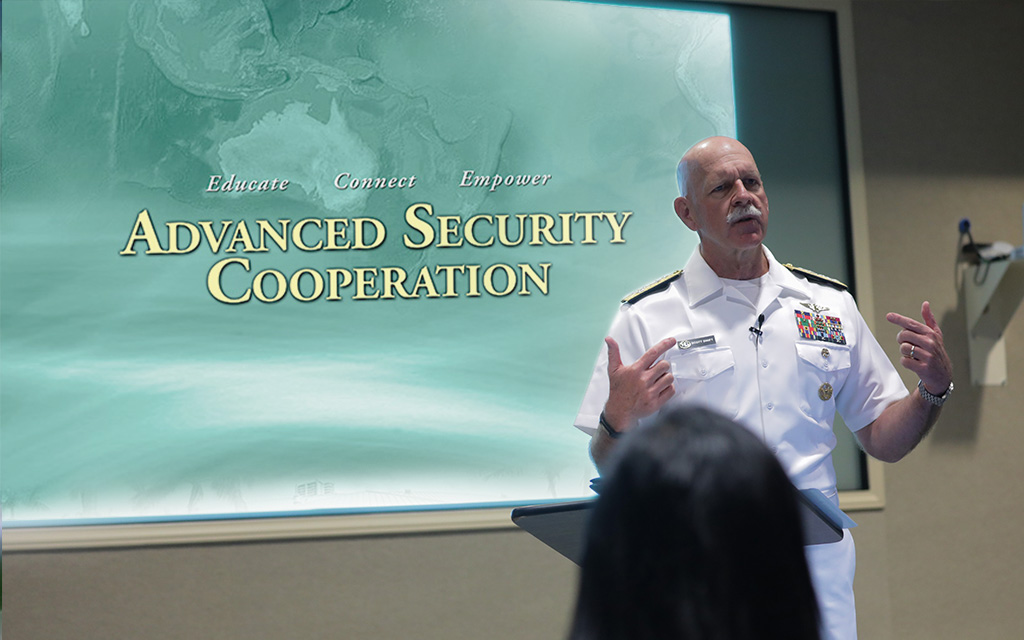
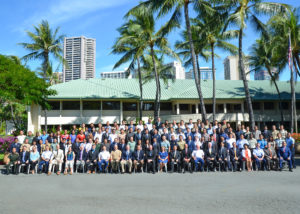
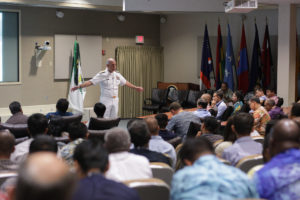

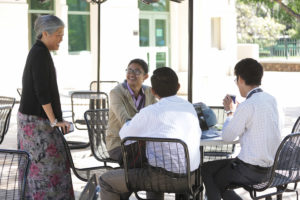
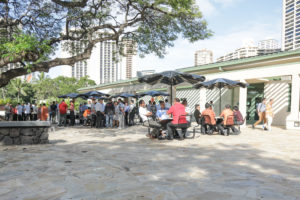
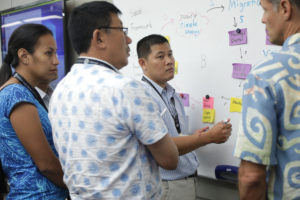
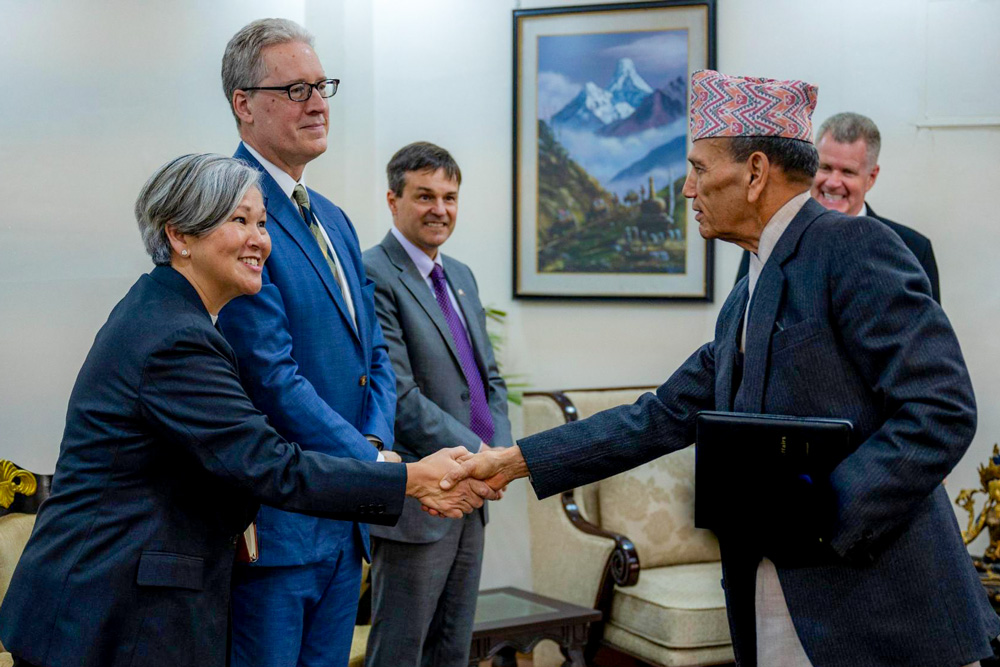
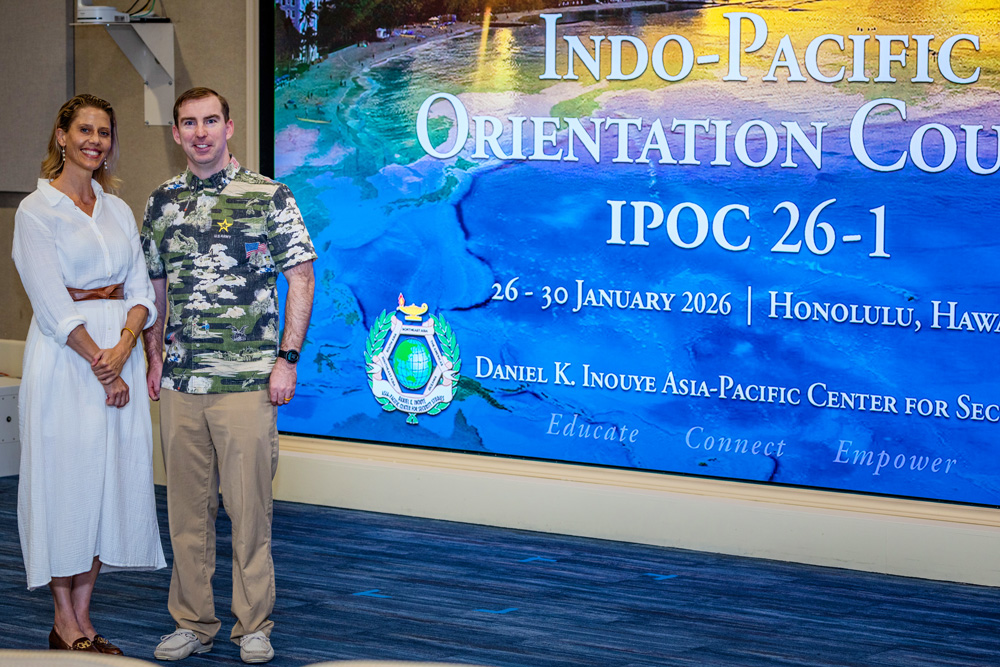





Leave A Comment